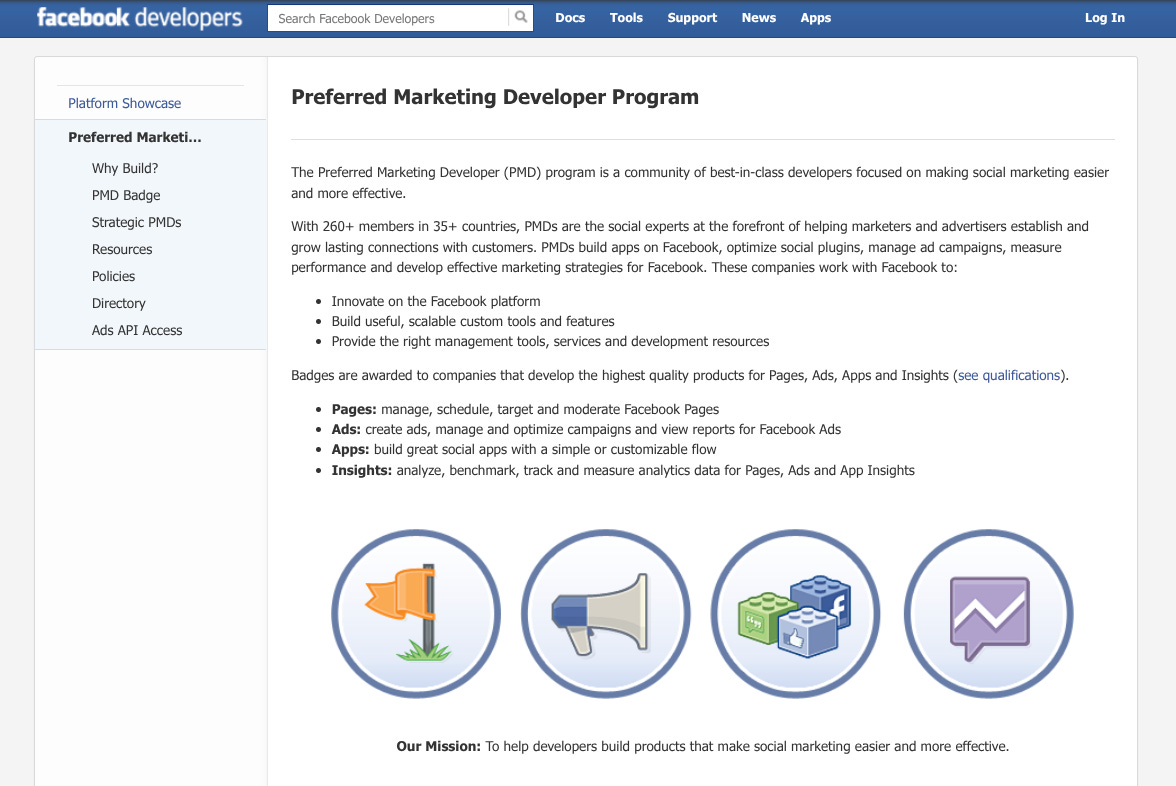One of Your Largest Partners Violated Your Policies. Now What?
Partners will always be tempted to test the limits.
It’s September 2012, and I’m staring at evidence that one of our largest Facebook Ads API partners has violated our platform policies.
The offending partner was one of the first companies to get Facebook Ads API access. Their CEO was a familiar face of social media advertising, frequently appearing on Bloomberg. The previous year, before I joined Facebook, I’d watched him passionately advocate for my now employer in a BBC documentary.
They managed over $150 million in Facebook advertising spend for global brands like Heineken and Capital One. But they’d been sharing confidential information about alpha/beta Facebook Advertising products with clients. Which was a clear no-no.
This would be tricky to navigate - we had never encountered an issue like this before.
Your biggest partners aren’t above your policies
Partners will always be tempted to test the limits of platform policies. And it can often be tempting to let them. When a major partner violates policies, it’s easy to explain it away with “but they drive significant revenue” or “but they're strategically important.”
Yes, this partner drove serious revenue for Facebook and our clients. But our policies existed to protect three critical stakeholders: our clients, our other partners, and our platform’s integrity for the people who used it.
The moment you make a platform policy exception for one partner is the moment you undermine the integrity of your policies for everyone.
A four-step fix
With this partner, I followed a four-step framework that I’ve used many times since across multiple roles. And - thankfully - no situation since has been public or “newsworthy.”
Align internally first
Once the situation is clear, and the evidence is clear, get all internal stakeholders on the same page, starting with legal. This is important before any external communication happens.
Yes, certain internal teams won’t be happy. Yes, there could be revenue - or other - implications. Address these concerns upfront and ensure everyone understands why policies exist and why they are enforced consistently.
Act decisively
Create a clear plan with specific timelines. Internal communications, external communications, and the content of them. Explore potential remediation plans. Explore potential impacts - good and bad. The longer you wait, the more likely it will be that information leaks and the situation escalates beyond your control.
Tough conversations are part of the job - embrace them rather than avoid them.
Communicate clearly
When you deliver the news, keep it factual and calm. Take the emotion out of it. The violations themselves and the decision to act on them aren’t personal - it’s an issue between two business entities.
Don’t react to any reaction the partner will have (and there will be a reaction). Don’t over-commit to future steps or potential remediation paths. Expect escalation - internal or external - and prepare leadership accordingly.
Offer a remediation path
Removing partners from programs or platforms for policy violations doesn’t have to mean burning bridges. It doesn’t make their company or the people working there “bad.” Humans are humans. Mistakes happen.
With this partner, we offered a six-month remediation path - they retained Ads API access, and a Facebook Solutions Engineer and I offered a full day on-site with their team to review their roadmap, provide support, and align on next steps. Their CEO appreciated our willingness to engage.
The outcome matters less than the precedent
The partner and Facebook re-established our relationship, and their business continued to prosper, eventually being acquired. But the real value was the message sent to our entire partner ecosystem: policies are non-negotiable, regardless of partner size or relationship history. Every partner would be held to the same standard.
That precedent protected us in dozens of subsequent situations. Partners knew we were serious about our policies, which actually made enforcement easier over time.
What this means for you
Every platform partnerships team will face a situation like this. The question isn’t if - it’s when you’ll face it and how you’ll handle it.
Your platform’s credibility with partners depends on fair, consistent policy enforcement. Exceptions don’t just undermine your policies - they undermine your entire program.
If you enjoyed reading this post - or would like to ask me a question - comment below or reach out to me on LinkedIn.



